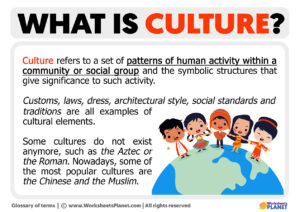Back to: Religion and National Value JSS 1
Welcome to class!
In today’s class, we’re going to be talking about the Similarities and Differences among Cultures in Nigeria. I trust you will enjoy the class!
Similarities and Differences among Cultures in Nigeria
Nigeria is a country rich in cultural diversity, with over 250 ethnic groups. Understanding the similarities and differences among these cultures is key to fostering unity and respect.
Similarities in Cultural

- Family System
– The extended family is a common feature across Nigerian cultures, emphasizing strong family ties.
- Respect for Elders
– Across cultures, there is a shared respect for elders, who are seen as sources of wisdom and guidance.
- Religious Practices
– Most Nigerian cultures have a deep sense of spirituality and engage in religious practices, though the religions may differ.
- Festivals and Celebrations
– Cultural groups in Nigeria celebrate festivals and ceremonies with music, dance, and elaborate costumes.
- Agricultural Practices
– Many cultures engage in farming, fishing, and trading as part of their livelihoods.
Cultural Differences

- Language
– Nigeria has over 500 languages spoken across different ethnic groups, each with its unique linguistic attributes.
- Dressing
– Styles of dressing vary significantly, with each culture having its traditional attire that reflects its identity.
- Food
– Nigerian cultures have diverse culinary traditions, with each ethnic group boasting its unique dishes and flavors.
- Marriage Customs
– Marriage rites and customs differ, with some cultures practicing bride price payment and others having unique betrothal ceremonies.
- Political Systems
– The political structures vary, with some cultures having kings (Obas, Obis, Ezes), while others have chiefs or community leaders.
Shared Norms and Values
– Hospitality: Nigerians are known for their warmth and hospitality towards guests and strangers.
– Integrity and Honesty: These are highly valued across cultures, with a general expectation for individuals to be truthful and upright.
– Hard Work: A strong work ethic is a common value, with an emphasis on diligence and productivity.
While there are many differences among the cultures in Nigeria, there are also significant similarities that bind the people together. Understanding these aspects helps junior secondary school students appreciate the nation’s rich cultural tapestry and the importance of national values like cooperation and unity.
We have come to the end of today’s class. I hope you enjoyed the class!
In the next class, we shall be discussing Agents and Processes of Socialization.
In case you require further assistance or have any questions, feel free to ask in the comment section below, and trust us to respond as soon as possible. Cheers!
We have come to the end of today’s class. I hope you enjoyed the class!
In the next class, we shall be discussing Agents and Processes of Socialization.
In case you require further assistance or have any questions, feel free to ask in the comment section below, and trust us to respond as soon as possible. Cheers!

the app has been helpful
Woah, This is what My Teacher gave us